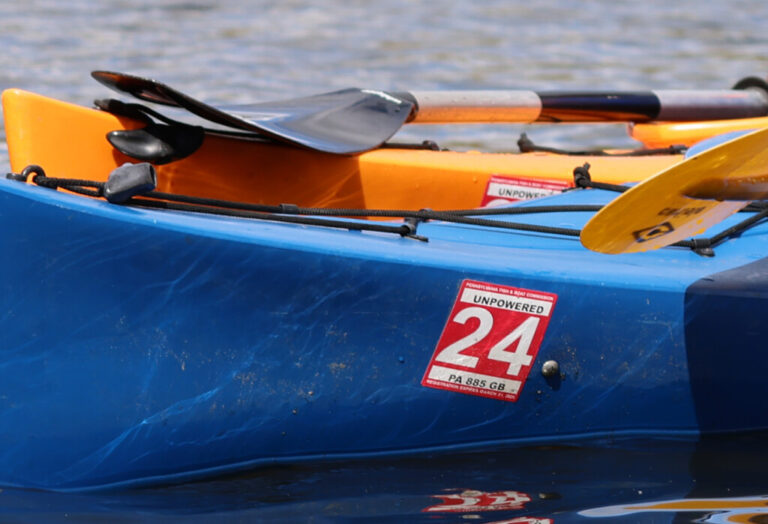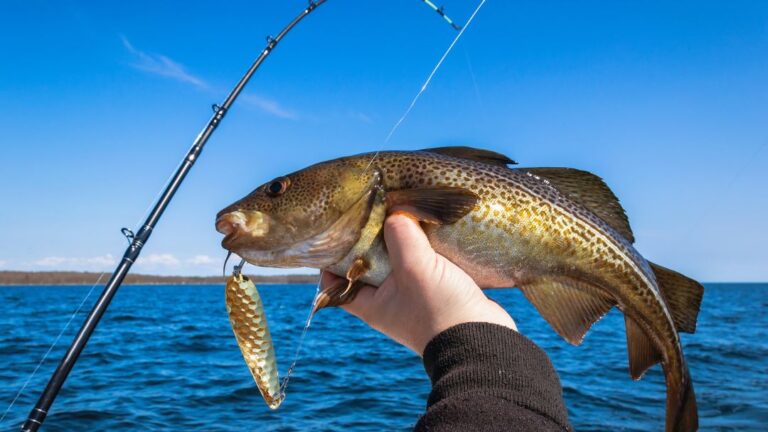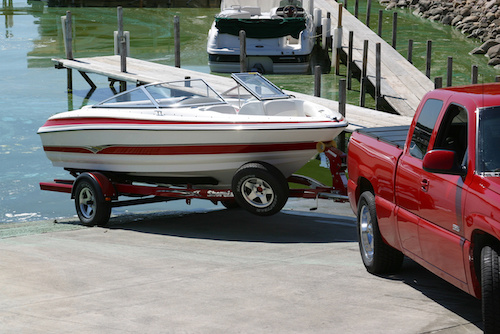Get a Maine Fishing License: Your Ultimate Guide to Adventure
Fishing in Maine offers beautiful views and great catches. But first, you need a fishing license.
Getting a Maine fishing license is important for enjoying the state’s rich waters. It helps protect fish populations and supports conservation efforts. Whether you are a resident or a visitor, a license ensures you can fish legally. It’s easy to get one, and there are options to suit different needs.
In this guide, we will explain how to get a Maine fishing license, why you need one, and the different types available. Let’s make sure you are ready for your next fishing adventure in Maine!
Introduction To Maine Fishing
Maine offers some of the best fishing experiences in the United States. Its clear waters and diverse fish species attract anglers from around the world. Whether you’re a beginner or a seasoned pro, Maine provides a unique fishing adventure. Before casting your line, you’ll need a Maine fishing license. This guide will help you understand why Maine is a top fishing destination and what types of fish you can catch.
Why Fish In Maine?
Maine’s natural beauty is stunning. Its lakes, rivers, and coastline offer varied fishing spots. You can fish in peaceful lakes or try your luck in the Atlantic Ocean. Maine’s waters are clean and well-maintained, ensuring a healthy fish population. The state also has strict conservation laws, protecting its aquatic life.
Fishing in Maine is more than just catching fish. It’s about enjoying the serene environment. The state’s picturesque landscapes add to the overall experience. You can enjoy the quiet mornings and vibrant sunsets while fishing. Maine’s fishing spots are easily accessible and cater to all skill levels. Whether you prefer fly fishing, ice fishing, or deep-sea fishing, Maine has it all.
Types Of Fish In Maine Waters
Maine waters are home to various fish species. Freshwater anglers can catch trout, bass, and pike. The state’s streams and rivers are perfect for fly fishing. Brook trout is a popular target and is found in cold, clear waters. Smallmouth and largemouth bass are common in Maine’s lakes. Pike and muskellunge are also sought-after species in freshwater.
Saltwater fishing offers different opportunities. The Gulf of Maine is rich in marine life. You can catch striped bass, bluefish, and mackerel. Lobster and crab fishing are also popular. Anglers often venture into deeper waters for tuna and shark. Maine’s coastal waters provide a diverse fishing experience. Each season brings different fish species, keeping the fishing experience exciting.
Types Of Fishing Licenses
Fishing in Maine offers a wonderful experience for both residents and visitors. To fish legally, you need a fishing license. Maine offers different types of fishing licenses. These licenses depend on various factors. Understanding these types helps you choose the right one. Here are the main types of fishing licenses in Maine.
Resident Vs. Non-resident
Maine offers different licenses for residents and non-residents. A resident lives in Maine for at least six months a year. They enjoy a lower license fee. Non-residents pay more because they do not live in Maine. This fee difference helps support local conservation efforts. Choose the right license based on your residency status.
Freshwater Vs. Saltwater
Fishing in Maine includes both freshwater and saltwater options. Freshwater licenses cover lakes, rivers, and ponds. These are ideal for catching species like trout and bass. Saltwater licenses are for fishing in the ocean. These licenses are essential for catching species like striped bass and mackerel. Make sure you get the correct license for your fishing location.
Eligibility Requirements
If you want to fish in Maine, you need a fishing license. It’s important to know the eligibility requirements before applying. Understanding the rules helps you avoid issues and enjoy your fishing trip.
Age Restrictions
Age matters when getting a Maine fishing license. Here’s a simple breakdown:
- Under 16: No license needed.
- 16 and older: Must have a license.
Remember, this applies to both residents and non-residents. Children under 16 can fish without a license, but adult supervision is recommended.
Residency Proof
Different rules apply for residents and non-residents. To get a resident fishing license, you need proof of residency. Here are acceptable documents:
- Driver’s license
- State ID card
- Utility bill
- Lease agreement
All documents must show your Maine address. If you are a non-resident, you will need to follow different guidelines. Non-residents must show proof of identity with a government-issued ID.
Meeting the eligibility requirements ensures a smooth application process. This allows you to focus on the joy of fishing in Maine’s beautiful waters.

Credit: content.govdelivery.com
How To Apply
Are you planning a fishing trip in Maine? To fish legally, you need a Maine fishing license. The process is simple and can be done in two ways: online or in person. This section will guide you through both methods.
Online Application
Applying for a Maine fishing license online is quick and easy. Follow these steps:
- Visit the official Maine Department of Inland Fisheries and Wildlife website.
- Navigate to the fishing license section.
- Choose the type of fishing license you need.
- Fill out the required information, including your name, address, and identification.
- Submit your application and pay the fee using a credit card.
- Print your temporary fishing license or save it on your mobile device.
Your permanent license will be mailed to you within a few days. Remember to carry your license while fishing.
In-person Application
If you prefer to apply in person, follow these steps:
- Find a local authorized agent. This could be a town office, sporting goods store, or the Department of Inland Fisheries and Wildlife office.
- Bring a valid ID and proof of residency, if applicable.
- Complete the fishing license application form provided by the agent.
- Pay the required fee. Most agents accept cash, credit cards, or checks.
Once you have completed these steps, you will receive your fishing license on the spot. Make sure to keep it with you while you enjoy your fishing adventure in Maine.
Whether you choose to apply online or in person, getting your Maine fishing license is a straightforward process. Happy fishing!
Costs And Fees
Getting a Maine fishing license is an important step for any angler. Understanding the costs and fees associated with it can help you plan better. Here’s a breakdown of what you need to know.
License Fees
The cost of a Maine fishing license varies based on residency and age. Maine residents usually pay less than non-residents. For example, an annual fishing license for a resident costs around $25. Non-residents may pay about $64. Seniors and youth often get discounts. Seniors over 70 can fish for free. Youth under 16 do not need a license.
Additional Permits
Some fishing activities require additional permits. For instance, if you want to fish for certain species, you might need a special permit. Ice fishing and saltwater fishing also require extra permits. These permits usually cost less than the main license. Always check if you need extra permits before you go fishing.
Fishing Regulations
Fishing in Maine offers a great experience. To protect fish populations, the state has fishing regulations. These rules ensure the sustainability of the water bodies. They also help maintain the balance of the ecosystem. Understanding and following these regulations is crucial for a successful fishing trip.
Catch Limits
Catch limits control the number of fish you can keep. This helps prevent overfishing. Different fish species have different limits. Check the specific limits for the area you plan to fish. Exceeding these limits can result in fines. It is important to know and follow the rules to protect fish populations.
Seasonal Restrictions
Seasonal restrictions are in place to protect fish during breeding times. Some species are off-limits during specific seasons. This allows them to reproduce and grow. Fishing during these periods can harm fish populations. Always check the seasonal restrictions before planning your trip. Respecting these rules helps maintain a healthy ecosystem.
Best Fishing Spots In Maine
Maine is a paradise for anglers. Its diverse waters offer countless opportunities for fishing. From serene lakes to bustling coastal waters, the state has something for everyone. This guide covers the best fishing spots in Maine. It highlights both inland and coastal locations. Grab your gear and explore these top spots!
Top Inland Locations
Maine’s inland waters are rich with fish. Here are the top inland locations:
| Location | Species |
|---|---|
| Moosehead Lake | Lake Trout, Salmon |
| Rangeley Lake | Brook Trout, Salmon |
| Grand Lake Stream | Landlocked Salmon |
| Sebago Lake | Landlocked Salmon, Bass |
Each lake offers unique experiences. Moosehead Lake is the largest in Maine. It is perfect for catching Lake Trout. Rangeley Lake is famous for its Brook Trout. It is a favorite among fly fishers. Grand Lake Stream is known for its Landlocked Salmon. Anglers flock here in the summer. Sebago Lake is also popular. It has a diverse fish population. It is great for both bass and salmon fishing.
Top Coastal Locations
Maine’s coastline is dotted with prime fishing spots. Here are the top coastal locations:
- Boothbay Harbor – Known for Striped Bass and Bluefish.
- Bar Harbor – Offers Mackerel and Atlantic Salmon.
- Casco Bay – Great for catching Cod and Haddock.
- Kennebunkport – Popular for Tuna and Shark fishing.
Boothbay Harbor is ideal for catching Striped Bass. It is a picturesque location. Bar Harbor offers Mackerel fishing. It is also a great spot for Atlantic Salmon. Casco Bay is known for its Cod. It is a favorite among deep-sea fishers. Kennebunkport is famous for Tuna. Shark fishing is also a popular activity here. All these coastal locations offer exciting fishing experiences.
Tips For A Successful Fishing Trip
Planning a fishing trip in Maine can be an exciting adventure. To make the most of your trip, preparation is key. Here are some tips to ensure you have a successful fishing experience.
Essential Gear
First, you need the right gear. A fishing rod and reel are must-haves. Choose a rod that suits the type of fish you aim to catch. Bring a variety of lures and bait. Each fish has its own preference. Don’t forget a tackle box to keep your gear organized. A fishing license is essential, so make sure you have it with you.
Safety Precautions
Safety should always come first. Wear a life jacket, especially if you are fishing from a boat. Check the weather forecast before heading out. Avoid fishing during storms. Tell someone your plans and expected return time. Bring a first aid kit for minor injuries. Stay hydrated and pack enough water. Lastly, be mindful of your surroundings and respect wildlife.
Conservation Efforts
Fishing in Maine is a cherished tradition, but it comes with responsibility. Obtaining a Maine fishing license supports vital conservation efforts. These efforts ensure that future generations can enjoy Maine’s beautiful waters and abundant fish populations.
Sustainable Fishing Practices
Sustainable fishing is key to preserving fish populations. Maine’s fishing regulations set catch limits and size restrictions. This helps maintain healthy fish stocks. Anglers are encouraged to practice catch and release. This ensures that fish can grow and reproduce. Using barbless hooks also reduces harm to fish.
Protecting Maine’s Ecosystem
Maine’s waters are home to diverse wildlife. Protecting the ecosystem is crucial. Fishing licenses fund habitat restoration projects. These projects improve water quality and support aquatic life. Invasive species control is another focus. Efforts are made to prevent non-native species from disrupting the ecosystem. Anglers play a role by reporting sightings of invasive species. Together, we can keep Maine’s waters healthy and vibrant.
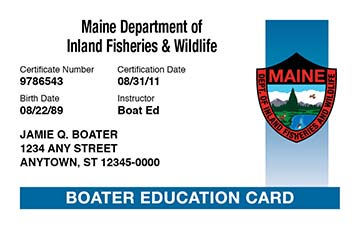
Credit: www.boat-ed.com
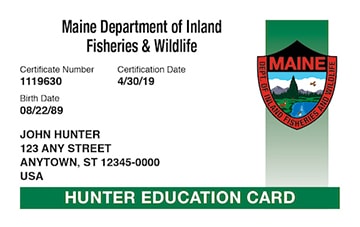
Credit: www.hunter-ed.com
Frequently Asked Questions
How Do I Get A Maine Fishing License?
To get a Maine fishing license, visit the Maine Department of Inland Fisheries and Wildlife website. You can purchase it online or at authorized agents.
How Much Does A Maine Fishing License Cost?
The cost of a Maine fishing license varies. Resident licenses start at $25, while non-resident licenses start at $64.
Can I Buy A Maine Fishing License Online?
Yes, you can buy a Maine fishing license online. Visit the Maine Department of Inland Fisheries and Wildlife website to purchase.
Do I Need A Fishing License In Maine?
Yes, anyone aged 16 and older needs a fishing license to fish in Maine’s waters.
Conclusion
Getting a Maine fishing license is simple and rewarding. It allows you to explore beautiful waters and catch various fish. Remember to follow local rules and regulations. Enjoy the peace and thrill of fishing in Maine. Happy fishing!

